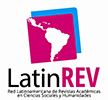Always losing track, erasing evidence, assaulting the pockets of the future outrageously
Analysis of Marco Lucchesi's The Emperor's Librarian from the perspective of the historical novel
ARK:
https://n2t.net/ark:/35231/pergaminho.v1n1.5Keywords:
Literature, History, Marco LucchesiAbstract
Fictional history consists of works in which historicity is one of the key elements. According to Linda Hutcheon, in the book A Poetics of Postmodernism: History, Theory, Fiction – literature rethinks and reconstructs forms and contents from the pastbased on the self-knowledge of history and fiction. Historiographic metafiction questions historical knowledge and the boundaries between deeds and fiction,and encompassing introspection, historical reference and intertextuality. Thus, it is concluded that historiographic metafiction gains a different insight into historical deeds and creates new means of comprehension through words in an esthetic level. This research aims to analyze the novel O Bibliotecário do Imperador (2013) and ponder over the aspects thataccount The Emperor's Librarian a contemporary historical novel, according to the assumptions of theoretical literature and history presented by Hutcheon (1991), Lukács (2011), Menton (1993) e Weinhardt (1994).
Downloads
References
BORGES, Vavy P. O que é história. São Paulo: Brasiliense, 1993.
COMPAGNON, Antoine. O Demônio da Teoria: literatura e senso comum. Belo Horizonte: UFMG, 2010.
HUTCHEON, Linda. Poética do pós-modernismo. Rio de Janeiro: Imago, 1991.
LUCCHESI, Marco. O Bibliotecário do Imperador. 1ª Edição. São Paulo: Globo, 2013. 112p.
LUKÁCS, George. O romance histórico. São Paulo: Bomtempo, 2011.
MENTON, Seymour. La nueva novela histórica. México: Fondo de Cultura, 1993.
WEINHARDT, Marilene. Considerações sobre o romance histórico. Curitiba: UFPR, 1994. p.49-59.
Downloads
Published
How to Cite
Issue
Section
License
Copyright (c) 2021 Revista Pergaminho

This work is licensed under a Creative Commons Attribution-NonCommercial 4.0 International License.


